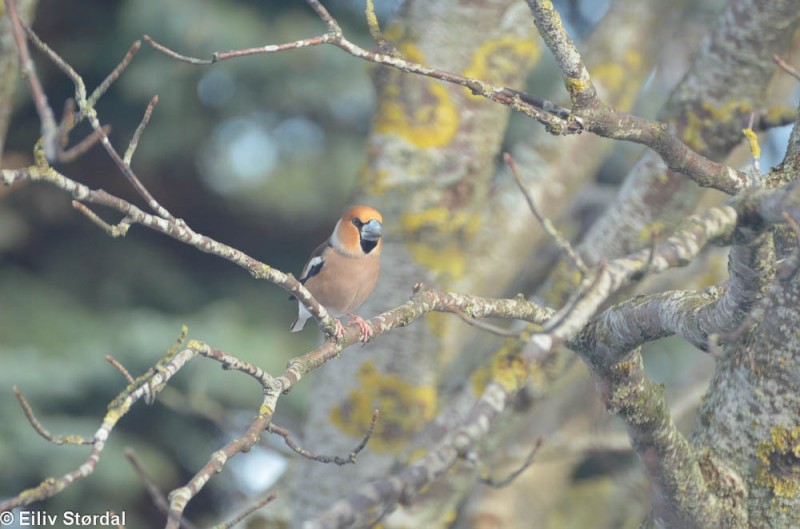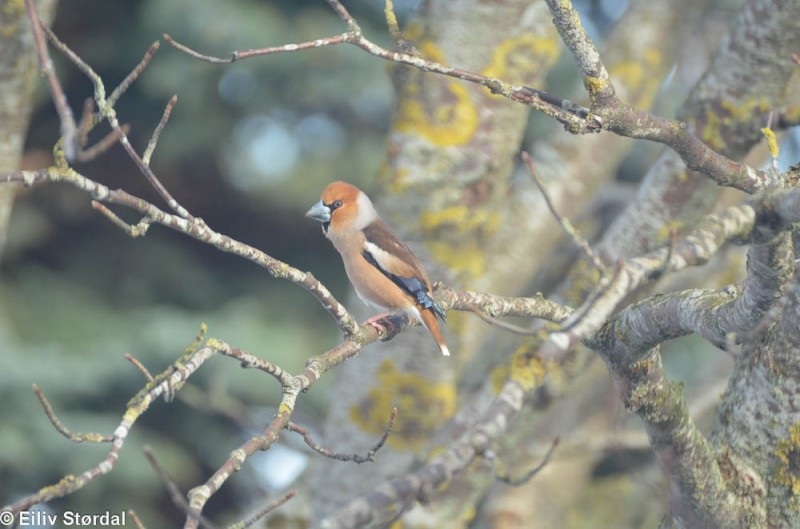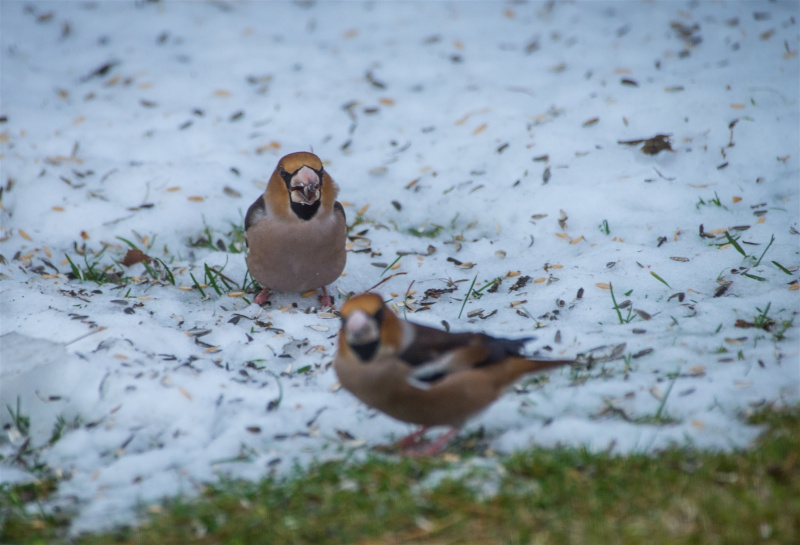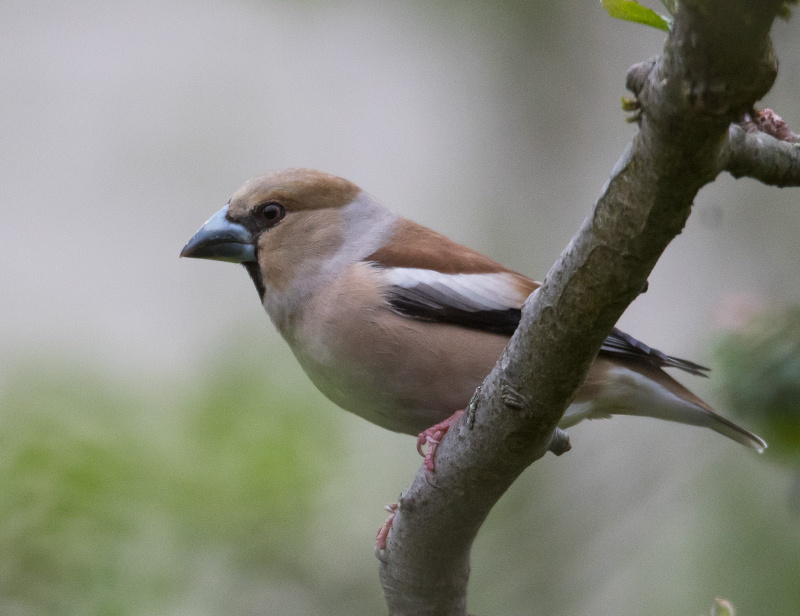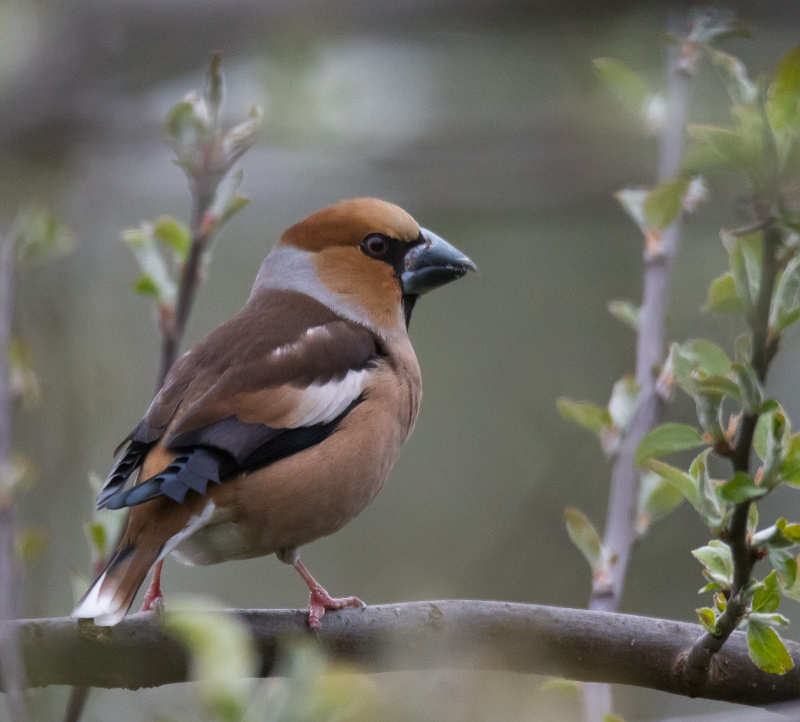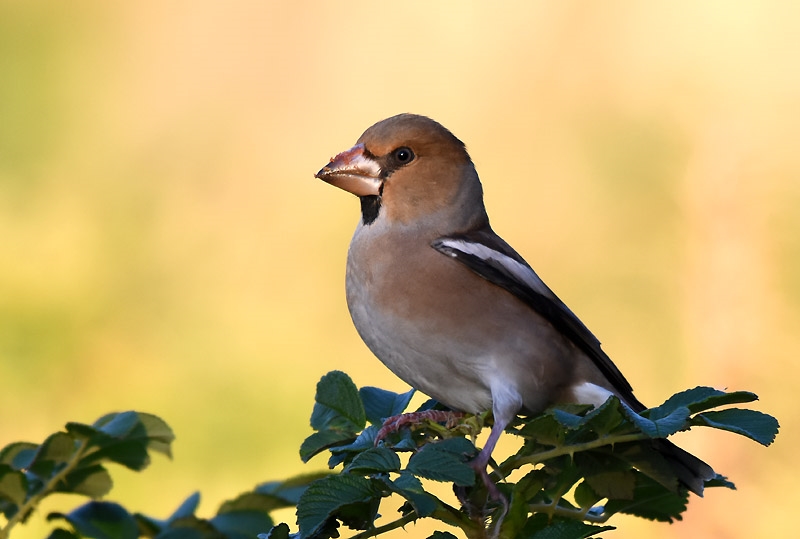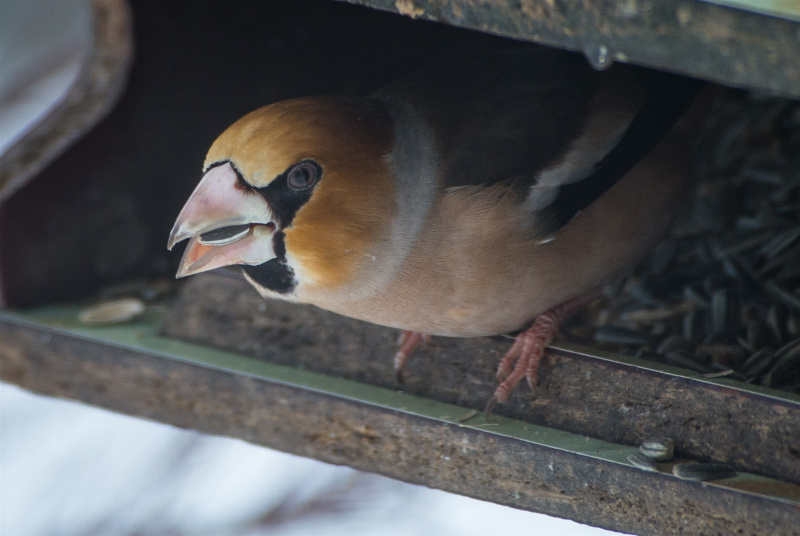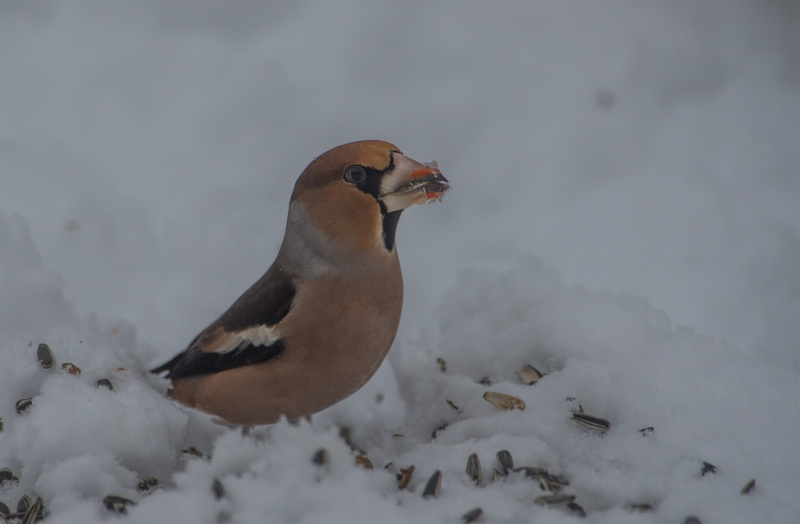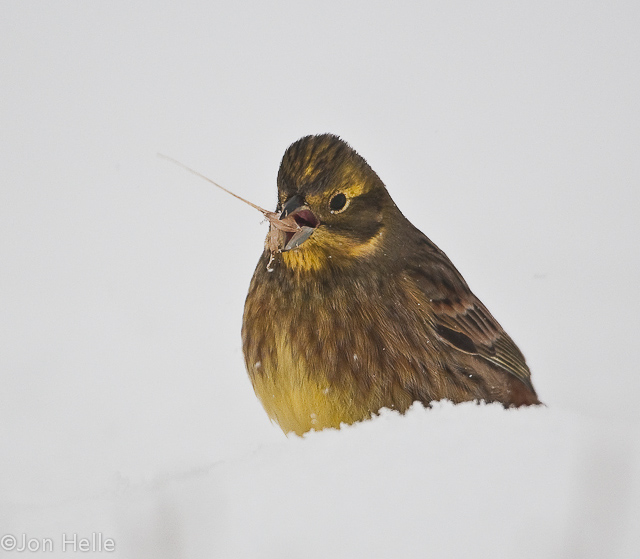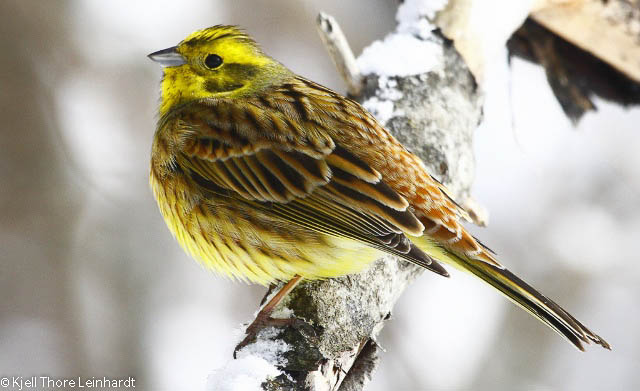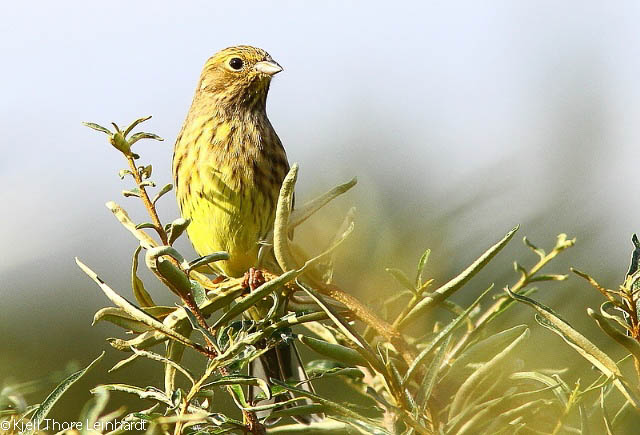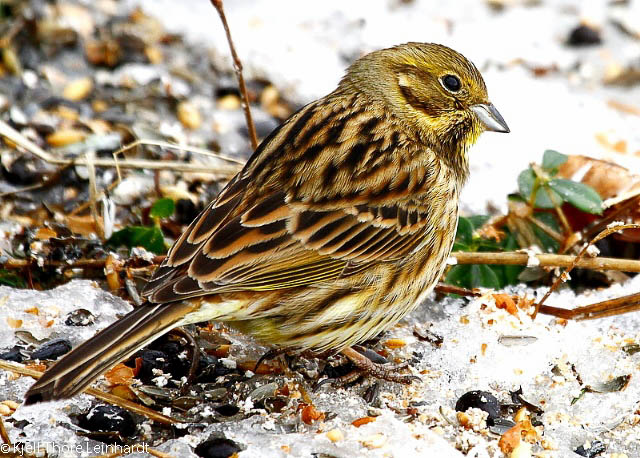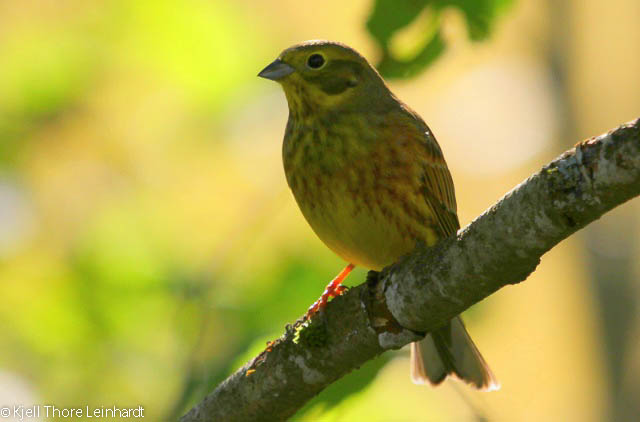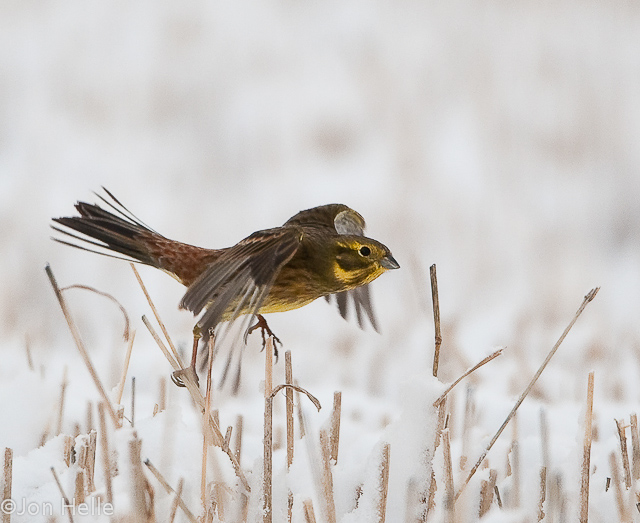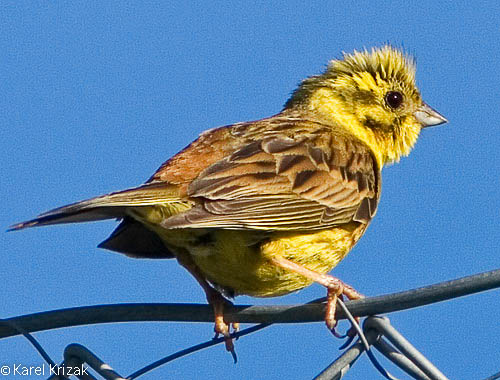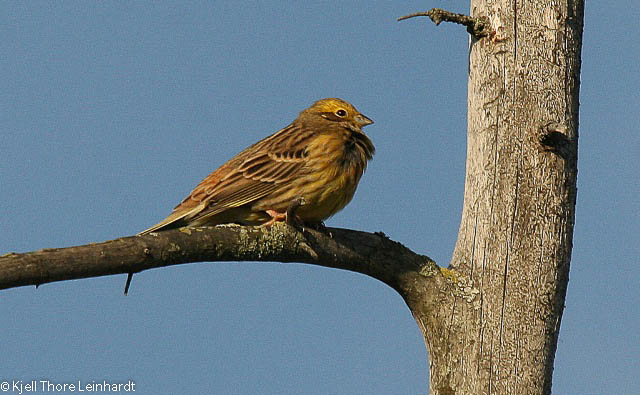Hawfinch (Coccothraustes coccothraustes)
Yellowhammer (Emberiza citrinella)
Very deep and heavy, conical bill. Large head and bull-neck, gives the bird a front-heavy appearance, especially in flight. The short tail adds to the impression. Wings with broad, white bars and tail with white terminal band. Bill grey in breeding plumage, and yellowish in winter. Largely unmistakable, but easily overlooked when hiding high in foliage. Often flies high, even for short distances. Flight heavily undulated.
Sound:Most typical call a sharp and explosive "tzek", with abrupt, emphasized, cut-off ending. Quite similar to Robin, but harder, with each syllable marginally longer with a slightly wheezing timbre. Repetitions are slower and more singular than Robin. Diagnostic when interspersed with high frequency notes.
Contact call:
Distribution:
Wikipedia: map (se also Xeno-canto below)
Ecology:Birdlife ecology
Links:
Observation.org Latest observations
Image search Flickr NB! May give other species
CCLarge and long-tailed bunting with rufous rump. Mainly yellow and brown plumage. Head bright yellow with dark markings in breeding male. Female darker, with streaked head, yellow throat and supercilium. Back greyish and streaked . Rufous rump distinguishes it from Ortolan and Cirl Bunting. Underparts pale yellow, with relatively coarse streaking.
Sound:Distinct contact call: A short and brittle "zeet", rich in harmonics. Song a series of 6-8 (or more) slightly ascending "tze" 's, rising in volume and ending on a sustained note, which may be lower or higher than the others. Often rendered as "little-bit-of-cheese-and-no-bread". Last note is often omitted, which may lead to confusion with Cirl Bunting. Timbre with prominent harmonics as in other bunting songs.
Song:
Distribution:
Wikipedia: map (se also Xeno-canto below)
Ecology:Birdlife ecology
Links:
Observation.org Latest observations
Image search Flickr NB! May give other species
CC
 English
English Albanian
Albanian
 Armenian
Armenian
 Bulgarian
Bulgarian
 Catalan
Catalan
 Croatian
Croatian
 Czech
Czech
 Danish
Danish
 Dutch
Dutch
 Finnish
Finnish
 French
French
 Georgian
Georgian
 German
German
 Greek
Greek
 Hungarian
Hungarian
 Italian
Italian
 Latvian
Latvian
 Lithuanian
Lithuanian
 Macedonian
Macedonian
 Norwegian
Norwegian
 Polish
Polish
 Portuguese
Portuguese
 Romanian
Romanian
 Russian
Russian
 Sami : Lule sami
Sami : Lule sami
 Sami : North sami
Sami : North sami
 Sami : South sami
Sami : South sami
 Scientific names
Scientific names
 Serbian
Serbian
 Spanish
Spanish
 Swedish
Swedish
 Ukrainian
Ukrainian

